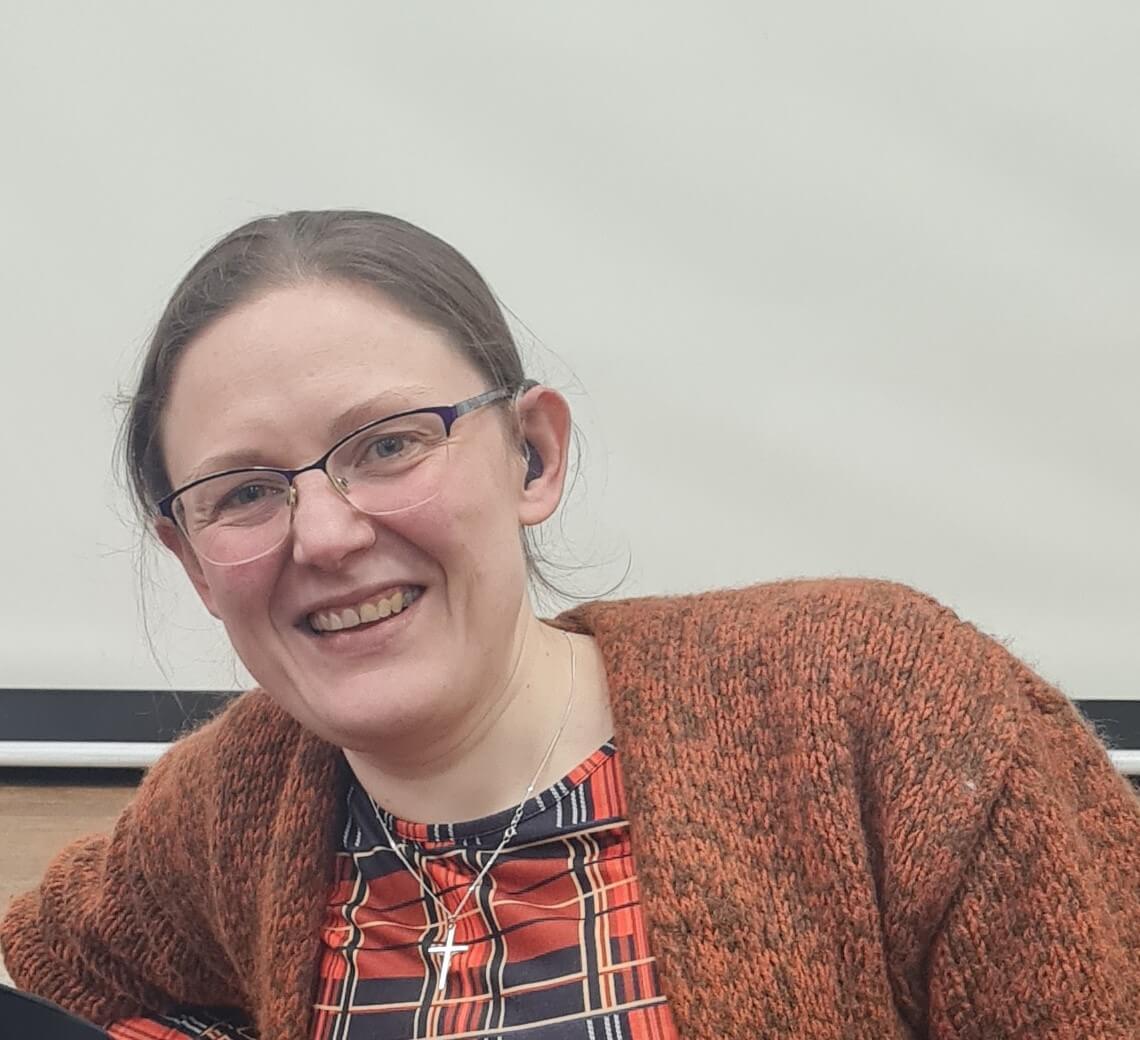The importance of accessibility

This week – 6 to 12 May – it’s Deaf Awareness Week and we’ve been sharing news and information about how we work with communities across Greater Manchester and Lancashire.
Here, Minna, who leads our accessibility service, talks more about her work and why it’s important – not just as a matter of convenience, but as a fundamental part of honouring human dignity too…
Tell us about your role at Caritas…
I work across the different Caritas services and projects as well as parishes within our diocese to create a positive atmosphere for dialogue about accessibility, disability and inclusion. I encourage people to share and develop ideas so that all people are empowered to take part in a way, and to an extent, that suits them best. That is what accessibility is about. The role is nearly two years old and part-funded by the Catholic Disability Fellowship.
Why is accessibility so important?
Accessibility is a basic requirement to honour human dignity, not a matter of convenience. No person should be unable to participate because of an unmet access need. Every human life is equal, sacred, and worthy of dignity and respect. We have a responsibility to make ourselves accessible and allow all people to participate.
Do you think people misunderstand what accessibility is and means?
YES! When we talk about accessibility barriers people often think of only environmental physical barriers but in fact these may be mental and emotional, learning, sensory or communication needs. If these needs are unmet, then a person experiences ‘dis-ability’ and exclusion. This can be overcome.
Working across services and parishes, I’ve never found evidence of any intentional exclusion, rather considerations have been made, but for what can be seen, or what is known about. We want people to talk about access needs, not feel that they are making a ‘fuss’ or that adjustments are too ‘difficult’. In truth, whenever services and parishes have learnt about the needs of people, creating the change has been straightforward – sometimes with suggestions from me and the person needing the adjustment. Honestly, I think the biggest barrier I have identified is mind-set: either ‘I can’t’ or, unfortunately, ‘you can’t’.
If you could give people three tips on simple ways to improve their accessibility or their approach to accessibility, what would they be?
Talk:
We need to remove any taboo that exists around talking about accessibility needs. Supporting people to feel safe enough to self-disclose accessibility should they want to is vital. I think taboos are often felt for fear of using inappropriate language or causing offence.
A woman once cautiously asked me, “I hope I don’t offend you, but do you mind me asking, are you deaf?”. On face value, a strange thing to ask me, but it highlights the desire people have not to cause offence. However, if we avoid a part or attribute of ourselves, or a part of another, we are not honouring or dignifying them or us as we or they are.
Universal Design:
Universal Design is a way of planning and designing activities in such a way that it is accessible for as many people as possible without the need for adjustment.
This saves time, money and reduces the occasion of feeling ‘different’ should an adjustment be needed. Some examples of acting with Universal Design include producing videos with captions, making food provision solely vegetarian with a large proportion gluten free, using venues at ground-level etc.
Raise Awareness:
As well as just talking about accessibility issues, hosting events or discussions like our free accessibility awareness sessions can show that you are serious about accessibility. This will help people feel that you are approachable about accessibility and perhaps open the door for wider conversations as well as increasing awareness.
How does Caritas support people with their accessibility needs?
Accessibility Advocates:
Caritas is working to increase awareness and dialogue but as we cover 602 sq km, we can’t do this alone, so we are working to support people to become volunteer accessibility advocates.
We are empowering volunteers to be a link between our projects and parishes and our accessibility service to increase our reach and support. Giving people a voice underpins our ethos. These volunteers also disseminate information and advertise opportunities such as awareness sessions.
Increase Accessibility Awareness:
We host a number of accessibility awareness sessions around the diocese and strive to offer topics underpinned by need in our projects and parishes.
Co-production:
Co-production is a way of designing services and projects that allows the people who (will) access them the opportunity to input opinions and highlight their needs with a role in the decision-making process.
This provides a good basis to improve accessibility for all people because we can gain insight from people with lived experience. This shows recognition that people facing barriers are best placed to understand what is needed to overcome them. This can also feed into our Universal Design process.
